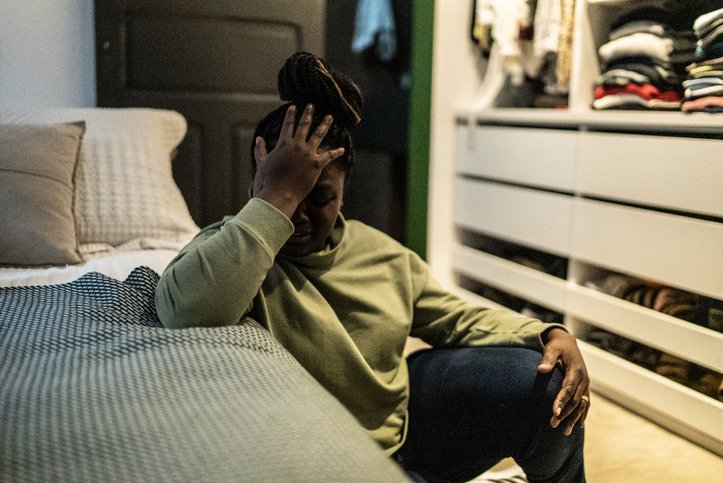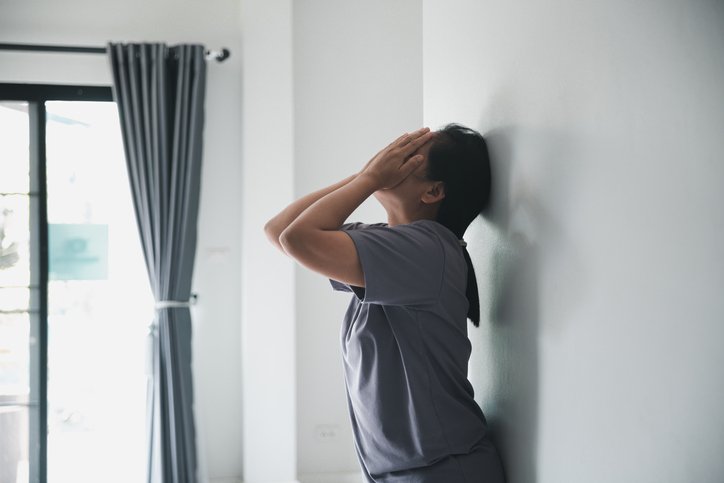

Panic attacks are sudden surges of intense fear or discomfort that can be highly distressing. People experiencing a panic attack may feel that they are out of control or even about to die. Panic attacks can happen to anyone, even to those who have Generalized Anxiety Disorder (GAD), but they may also be a sign of an underlying mental health condition such as panic disorder.
Whether you have never experienced a panic attack before or have suffered from them for years, panic attacks can be frightening and overwhelming. Recognizing the signs of a panic attack can help you understand what is happening and enable you to more effectively manage your symptoms.
Keep reading to understand what panic attacks look like, why they may occur, and strategies for managing them.
If you experience recurrent panic attacks or deal with panic attacks brought on by chronic or situational anxiety, help is available. Talk with a counselor or psychiatrist about your treatment options, including therapy, lifestyle changes, medication, and more, to help you manage panic disorder or related anxiety symptoms.
What is a Panic Attack?
A panic attack is a sudden surge of intense fear or apprehension, accompanied by a number of physical symptoms such as shortness of breath and a fast heartbeat. Panic attacks can be provoked by particular situations, or they may occur even in the absence of an identifiable trigger.
Some examples of the symptoms of panic attacks may include:
- Trembling: You may experience uncontrollable shaking or trembling in your body.
- Chest pain or discomfort: You may feel a tightness or pressure in your chest, or feel like you are having a heart attack.
- Racing heart: Your heart may feel like it is racing, pounding, or fluttering in your chest.
- Sweating: You may start to sweat profusely, even if the environment is not particularly warm.
- Feeling faint: You may feel like you are about to faint or lose your balance.
- Shortness of breath: You may feel as though you are struggling to catch your breath, or like you are suffocating.
- Depersonalization or derealization: You may feel that you are detached from yourself or reality
People may feel that they are losing control, “going crazy,” or experiencing a health crisis like a heart attack. Panic attacks are usually short, starting suddenly and reaching their maximum intensity within ten minutes, but can last up to an hour.
What Can Cause Panic Attacks?
Panic attacks can be triggered by various situations, thoughts, or sensations that are perceived as threatening or dangerous. They can also occur without any apparent trigger. Panic attacks themselves are a symptom, rather than a diagnosis. They can occur in isolation or as part of a number of mental health conditions.
Panic attacks are a prominent feature in panic disorder, a type of anxiety disorder characterized by recurrent panic attacks and the fear of having further panic attacks. In panic disorder, at least some of the panic attacks have no clear trigger. The fear of having more panic attacks will often cause individuals to change their behavior and limit their exposure to unfamiliar situations. If left untreated, panic disorder can have long-term effects on a person’s physical and mental health, impacting their relationships, work, and other areas of life.
Other mental health conditions can also have panic attacks as a symptom. For example, individuals with post-traumatic stress disorder (PTSD) may experience panic attacks triggered by exposure to the traumatic event. People with a social anxiety disorder may experience panic attacks related to social situations, and those with specific phobias may experience attacks triggered by their specific feared objects. Panic attacks and panic disorder can also be associated with agoraphobia, in which individuals become fearful of situations where they might develop panic symptoms and be unable to escape. In severe cases, people may even avoid leaving their homes due to overwhelming fear and anxiety.
Ultimately, the exact cause of a panic attack may be difficult to pinpoint and will vary from person to person. A mental health professional trained in trauma-informed care can help you understand the underlying causes of your anxiety and provide proper anxiety treatment and practical advice on coping with your symptoms.

Strategies to Manage a Panic Attack
There are several strategies that can be helpful in managing panic attacks. Here are a few techniques that may be useful:
- Deep breathing: Slow, deep breathing can help to calm your body and reduce symptoms of panic. Try inhaling slowly for 4 seconds, holding your breath for 7 seconds, and exhaling slowly for 8 seconds. Repeat this cycle several times until you feel more relaxed.
- Relaxation techniques: Practicing relaxation techniques such as meditation, progressive muscle relaxation, or yoga can help to reduce overall anxiety and prevent panic attacks.
- Positive self-talk: Remind yourself that the panic attack will pass and that you are safe. Repeating positive affirmations such as “I am in control” or “I am safe” can be helpful in reducing anxiety.
- Grounding techniques: Focusing on your senses can help to bring you back to the present moment and reduce symptoms of panic. Try touching something with a different texture, smelling something pleasant, or looking at something in detail.
- Exercise: Regular exercise can help to reduce overall anxiety and stress, which can help to prevent panic attacks.
- Emotional support: Talking to a trusted friend or family member can be helpful in reducing feelings of isolation and anxiety. Consider reaching out to a mental health professional who can provide additional support and guidance.
While the strategies above can help you cope with panic attacks, it is important to seek professional help to evaluate and treat any underlying mental health conditions. Panic disorder and other conditions with panic attacks can be effectively treated with psychotherapy, medication, or a combination of both.
Overcome Panic Attacks with Help from Geode Health
Panic attacks can be incredibly distressing and take a toll on your physical, mental, and emotional well-being. However, by understanding the triggers of panic attacks, practicing effective coping techniques, and seeking professional help, it is possible to reduce the impact of panic attacks on your life. Proper treatment can decrease the frequency and intensity of panic attacks and alleviate fears of future attacks, giving you the confidence to live more freely.
At Geode Health, we take a thorough and personalized approach to treating patients so that we can provide solutions to fit each individual’s lifestyle. If you are struggling with panic attacks or anxiety, contact a Geode provider near you today for the best possible care.
Get therapy sessions customized to meet the needs of individuals and couples striving for improved mental and emotional health. We have accessible locations across Georgia, Illinois, North Carolina, and Texas.
If you’re in search of a therapist in Fort Worth, a psychiatrist in Frisco TX, or psychiatrist in Chicago, IL, our team is here to support you throughout your journey.


